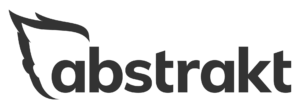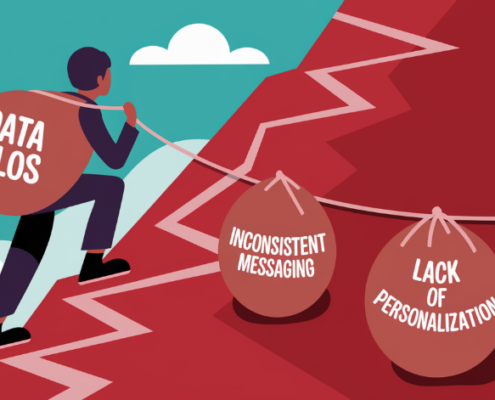

Cold calling can be one of the most intimidating tasks for sales professionals. The fear of rejection, the pressure to perform, and the unknown response on the other end of the line can create significant anxiety. However, with the right approach and mindset, you can overcome this fear and become a confident and successful cold caller. This guide will help you navigate the process and develop the skills needed to conquer your cold-calling fears.
Understanding the Fear of Cold Calling
Cold calling isn’t the easiest job in the world. In fact, many enter the field of sales development with little to no prior experience. So, how should you go about launching your career without nerves? The answer is to build your confidence and practice. Rome wasn’t built in a day, and neither is a career.
Every cold caller starting out has been there. Sweaty palms and nervous jitters are completely normal when speaking to someone you’ve never met before, even better, trying to turn them into a potential prospect. When you pick up the phone, there are many different possible outcomes, and this can lead to anxiety, nervousness, and feeling downright hopeless.
Some of the major concerns people have when first starting out are:
- Fear of Rejection: The worry that the prospect will say no or be rude is a primary concern. This fear is often rooted in a desire for acceptance and can be exacerbated by past negative experiences.
- Performance Pressure: The feeling that you need to make a sale on every call can create significant stress. High expectations, whether self-imposed or from management, add to this pressure.
- Lack of Control: Not knowing how the call will go or what the prospect will say can make cold calling feel daunting. The unpredictability of each conversation can heighten anxiety.
- Fear of the Unknown: Uncertainty about the prospect’s reaction can lead to hesitation and avoidance of making calls altogether.
Overcoming Your Cold-Calling Fears
While you may feel beyond saving when it comes to your cold-calling abilities, fear not. These steps are designed to relieve the pressure and reframe your point of view regarding work. At the end of the day, it is important to recognize that you are only human and take care of your mental health.
That being said, there are several ways to start unwinding this apprehension so you can reach your fullest potential as a sales development representative (SDR).
Step 1: Preparation and Research
One of the best ways to combat fear is through thorough preparation. Here’s how you can prepare for your cold calls:
Know Your Product: Be confident in your knowledge of the product or service you’re selling. Understanding its features, benefits, and unique selling points will allow you to answer questions confidently and convincingly.
Research Your Prospects: Understand their business, needs, and pain points. Gather information using tools like LinkedIn, company websites, and industry news. This will help you tailor your pitch and make the conversation more relevant.
Develop a Script: Create a flexible script that covers key points but allows for natural conversation. Your script should include an introduction, key benefits, common objections with responses, and a closing statement or question to advance the conversation.
Detailed Preparation Tips:
Creating Buyer Personas: Develop profiles of your ideal customers, including their demographics, interests, and common challenges. This will help you better understand and relate to your prospects.
Building a List of Key Benefits and Objections: Identify your product’s primary benefits and common objections prospects might have. Prepare responses to address these objections effectively.
Tailoring Scripts to Different Types of Prospects: Customize your scripts based on the specific needs and pain points of different prospect segments.
Step 2: Practice Makes Perfect
Practice is crucial in overcoming any fear. The more you practice, the more comfortable you will become. With cold calling, the more practice you get, the easier and smoother your objection handling gets too. Here are some ways you can practice being confident and develop cold calling finesse.
Role-Playing: Practice with a colleague or mentor. Role-playing can help you anticipate objections and improve your responses. It also provides a safe environment to make mistakes and learn from them. Schedule regular practice sessions with a colleague or supervisor to simulate real cold-calling scenarios.
Record Yourself: Listen to your calls to identify areas for improvement. Pay attention to your tone, pacing, and how well you respond to objections. Review your calls to identify patterns and areas where you can improve your delivery and response times.
Start Small: To build your confidence, begin with less intimidating prospects. Gradually work your way up to higher-value targets as you become more comfortable. Start with easier calls and progressively tackle more challenging prospects to build your confidence and skill.
Step 3: Mindset and Attitude
Your mindset plays a significant role in how you approach B2B appointment setting. Staying positive is crucial; focus on the potential success rather than the fear of rejection. Visualize positive outcomes and remind yourself of past successes to build confidence. Embrace rejection by understanding that not every call will result in a sale. Rejection is part of the process and an opportunity to learn, with each “no” bringing you closer to a “yes.” Set realistic goals by aiming for meaningful conversations or gathering information instead of closing every call. These smaller, achievable objectives can help reduce pressure and make the process more manageable.
Developing a positive mindset involves several techniques. Replace negative thoughts with positive self-talk and affirmations, reminding yourself of your skills and past achievements. Break down your goals into smaller, incremental tasks to build confidence, and celebrate small wins to maintain momentum. After each call, reflect on what went well and identify areas for improvement. This continuous learning approach will help you apply lessons from each call to future ones, enhancing your performance over time.
Abstrakt Marketing Group has proven B2B appointment-setting tactics to generate the leads you’ve been waiting for. With our team of skilled SDRs, we take your ideal meeting and turn it into a recurring reality for your salespeople. Our quality appointments can take your business to new heights and expand your visibility.
Step 4: Building Rapport
Building a connection with the prospect can alleviate fear and make the call more comfortable. It’s usually easier to talk to someone you have already established rapport with, so put these considerations to good use while calling:
Personalize Your Approach: Use the information you’ve researched to relate to the prospect. Mention common interests or recent news about their company to create a connection.
Active Listening: Show genuine interest in the prospect’s needs and respond thoughtfully. Reflect back what they say and ask follow-up questions to demonstrate understanding.
Be Yourself: Authenticity can help you build trust and make the conversation more natural. Prospects are more likely to respond positively if they feel they are talking to a real person rather than a scripted salesperson.
Rapport-Building Techniques
Not sure where to start with building rapport? Here are some ways you can spark up a meaningful conversation and build a prospect/caller relationship off the jump.
Using Open-Ended Questions: Encourage prospects to share more about their needs and challenges. This helps build a two-way conversation.
Reflecting the Prospect’s Concerns and Interests: Show empathy and understanding by acknowledging the prospect’s concerns and aligning your responses with their interests.
Sharing Relevant Personal Experiences: Relate to the prospect by sharing personal or customer success stories that highlight the benefits of your product or service.
Step 5: Managing Stress and Anxiety
Effectively managing your stress levels is crucial for optimal performance during calls. One useful technique is practicing breathing exercises, such as the 4-7-8 method, where you inhale for four seconds, hold for seven seconds, and then exhale for eight seconds. This can help calm your nerves before making calls. Additionally, it’s important to schedule regular breaks to prevent burnout. Taking time to relax, stretch, or go for a short walk can keep you refreshed and focused. While apps and tools can help manage your schedule, incorporating breaks allows you to remain cool, calm, and collected, giving you the best chance at success.
Staying organized is another key factor in managing stress. By keeping your workspace and notes in order, you can reduce distractions and improve focus. Utilizing a CRM system to track your calls and follow-ups can further streamline your workflow. Don’t hesitate to ask team leaders for tips on how to make your software and technology work for you, not against you. Good time management and organization are essential to maintaining your composure and efficiency throughout the day.
Step 6: Continuous Improvement
The pursuit of continuous improvement is essential for mastering cold-calling skills. One effective way to enhance your abilities is by seeking feedback regularly from colleagues or supervisors. Constructive criticism can reveal areas for growth that you might not notice on your own, providing valuable insights for refining your approach.
Additionally, staying informed about industry trends and best practices is crucial. Attending workshops and webinars, as well as reading articles or books on sales techniques, can keep you up-to-date and inspired. It’s also important to reflect on each call you make. Taking a moment to assess what went well and what could be improved helps you learn from every experience. Consider journaling your reflections to track your progress and identify patterns over time. This practice can be instrumental in developing a more effective and confident approach to cold calling.
Why People Cold Call for B2B Appointment Setting
Cold calling is essential in B2B appointment setting because it allows businesses to reach potential clients and decision-makers directly. This immediate, personalized interaction helps build rapport and address specific needs in real-time, increasing the chances of securing an appointment.
Cold calling is also effective for generating leads and qualifying prospects. It enables sales teams to identify genuinely interested clients, gather valuable information about their business and pain points, and tailor follow-up communications accordingly.
Furthermore, cold calling complements other marketing efforts by providing a proactive approach to lead generation. While inbound marketing takes time, cold calling can quickly fill the sales pipeline with immediate opportunities. This balanced strategy accelerates the sales process and helps businesses achieve their growth objectives more rapidly.
Key Takeaways
Overcoming the fear of cold calling is a gradual process that requires a combination of preparation, practice, and a positive mindset. By thoroughly understanding your product, researching your prospects, and developing a flexible script, you can approach each call with confidence. Practicing through role-playing and recording your calls will help you refine your technique and become more comfortable with the process. Remember, starting with less intimidating prospects can help build your confidence before tackling higher-value targets.
A positive mindset is essential for successful cold calling. Focusing on potential successes rather than fearing rejection can significantly impact your performance. To maintain motivation, embrace rejection as a learning opportunity, set realistic goals, and celebrate small achievements. Building rapport with prospects through personalized approaches and active listening will make your calls more effective and enjoyable. Managing stress with techniques like deep breathing exercises and taking regular breaks can also improve your overall performance.
For those seeking professional assistance, Abstrakt offers comprehensive cold calling and Sales Development Representative (SDR) services designed to help businesses succeed. Our experienced team uses proven strategies to overcome the challenges of cold calling and deliver meaningful results. Whether you need help creating or managing your sales pipeline, Abstrakt’s services are tailored to meet your specific needs and drive your business growth. Contact us today to learn how we can support your cold-calling efforts and boost your sales success.











